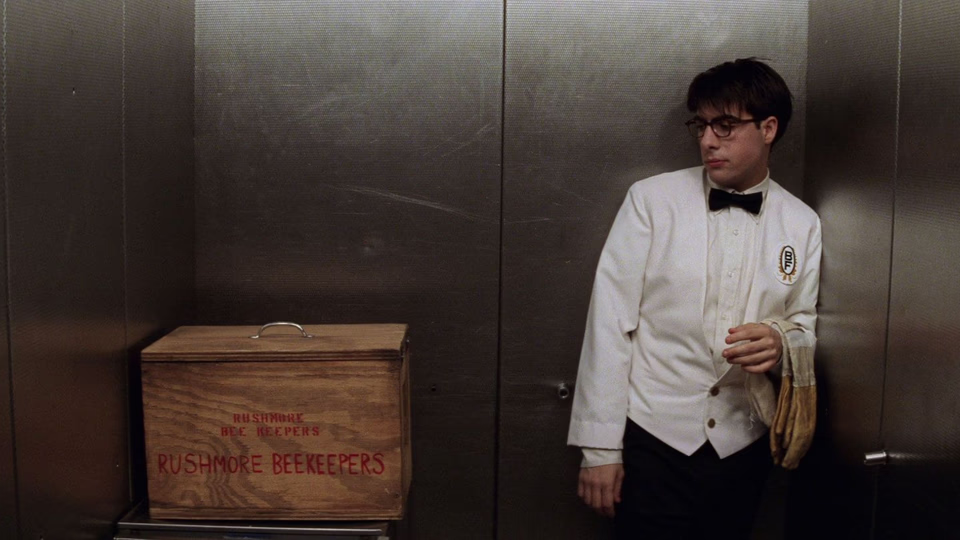Rushmore

A bright, but academically troubled, 15-year old (Jason Schwartzman) finds his life turned upside down when he and his friend (Bill Murray) both fall in love with an elementary school teacher (Olivia Williams).
Rushmore is a perfect film. Every detail: the script, the cast, the direction, and even the soundtrack, they’re all perfect.
The script by director Wes Anderson and Owen Wilson perfectly balances dry, sardonic humor with a genuine affection for the characters, thus generating a real emotional undercurrent, which extends to the audience. Despite, or perhaps because of, their eccentricities, you care about these characters and want to see them do well. Further, the note-perfect ending is a thing of absolute beauty that just gets better every time you watch it.
Of course, the fantastic casting doesn’t hurt. Jason Schwartzman pulls off the complex lead character with such gusto; it’s hard to believe Rushmore was his first film. Opposite him, Bill Murray gives one of the best performances of his career as a disaffected industrialist taken by Schwartzman’s character’s love of life. The unlikely chemistry between the two sparkles on the screen, and goes a long way toward building the aforementioned emotional undercurrent.
Complementing the script and cast is Anderson’s meticulous visual style. Every aspect of every shot feels labored over. Rushmore is a film with endless replay value if only to notice the infinite minutia. From the decorations on the walls of Olivia William’s character’s classroom, to the outrageously over the top plays Schwartzman’s character creates, Rushmore is jammed full of carefully chosen details that add up to a wonderful whole.
Finally, tying it all together is a great eclectic soundtrack that gives the film a timeless quality in addition to perfectly complementing several of the film’s most memorable sequences.